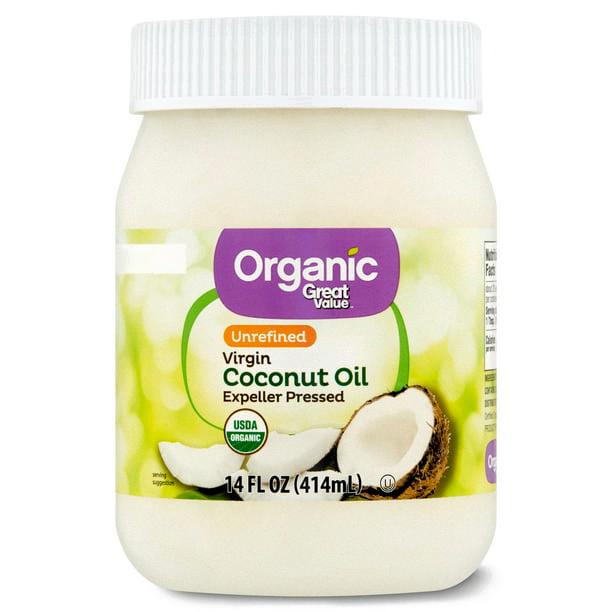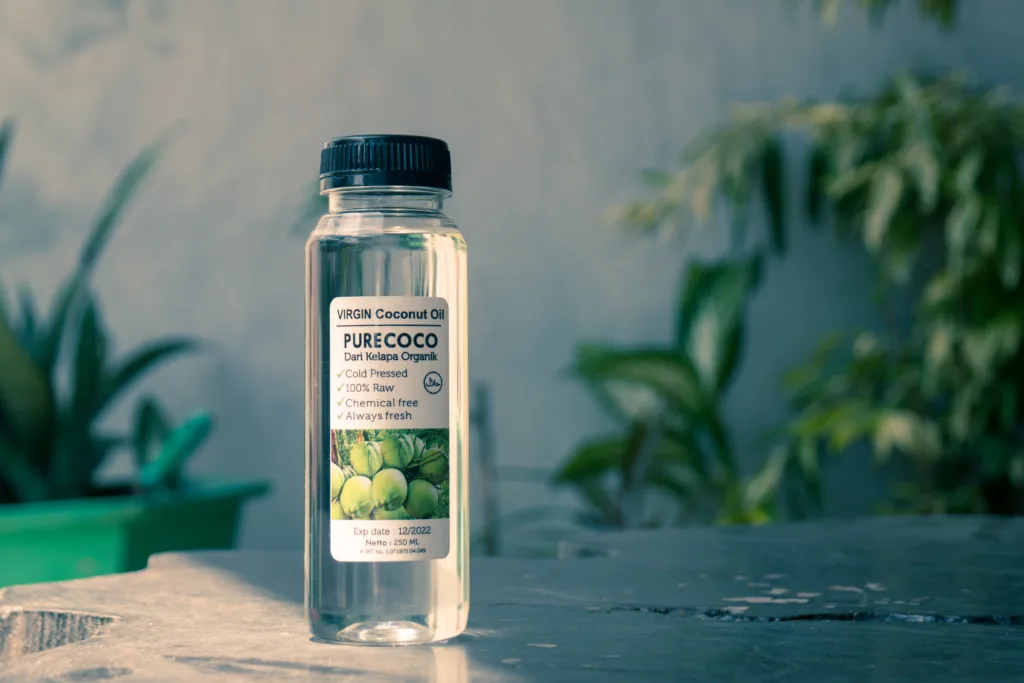Coconut oil is a versatile ingredient that can be used in a variety of cooking and baking recipes. However, to use it in these recipes, it must first be melted. Fortunately, melting coconut oil is a quick and easy process that can be done in a variety of ways. In this article, we will discuss the benefits of coconut oil and the different methods you can use to melt it.
Coconut oil is a popular cooking ingredient because of its many health benefits. It is high in medium-chain triglycerides (MCTs), which are easily digestible and provide an immediate source of energy. Additionally, coconut oil is rich in lauric acid, a fatty acid that has been shown to have antimicrobial properties.
Furthermore, coconut oil is a great alternative to traditional cooking oils because it is stable at high temperatures. This means that it does not break down and become toxic when heated, unlike other oils such as vegetable oil.
There are several ways to melt coconut oil, each with its own advantages and disadvantages. Here are the most common methods:
Microwave
One of the easiest ways to melt coconut oil is to use a microwave. Simply spoon the desired amount of coconut oil into a microwave-safe dish and heat it in 10-second increments until it is melted. Be sure to stir the oil between each heating interval to ensure that it melts evenly.
Stovetop
Another way to melt coconut oil is to use a stovetop. Spoon the desired amount of coconut oil into a small saucepan and heat it over medium heat, stirring occasionally. Be sure to keep an eye on the oil as it melts, as it can quickly go from solid to liquid.
Hot Water Bath
If you do not have a microwave or stove, you can also melt coconut oil uing a hot water bath. Simply place the jar of coconut oil in a bowl of hot water and let it sit until it is melted. Be sure to stir the oil before using it to ensure that it is evenly melted.
Coconut oil is a versatile and healthy ingredient that can be used in a variety of cooking and baking recipes. Melting coconut oil is a quick and easy process that can be done using a microwave, stovetop, or hot water bath. Be sure to stir the oil before using it to ensure that it is evenly melted.
Liquifying Coconut Oil: The Best Method
Coconut oil is a versatile ingredient that is widely used in cooking, baking, and skincare. However, sometimes it can solidify in cooler temperatures, which can make it difficult to use. If you’re wondering what the best way to liquify coconut oil is, there are a few methods you can try.
1. Microwave method: This method is quick and easy. If your coconut oil is in a glass jar, simply remove the lid and microwave the jar in 15-second intervals until the oil has melted. If your coconut oil is in a plastic container, transfer the desired amount to a microwave-safe bowl and heat it in the same way.
2. Stove method: If you prefer not to use a microwave, you can also melt coconut oil on the stove. Spoon the desired amount of coconut oil into a small saucepan and heat it over medium heat. Stir the oil constantly until it has melted completely.
3. Warm water bath method: This method is also easy and doesn’t require any heat. Simply fill a large bowl with warm water and place the container of coconut oil in it. Leave it for a few minutes until the oil has softened and turned to liquid.
4. Room temperature method: If you have time and don’t need to use the coconut oil immediately, you can simply leave it at room temperature until it liquifies on its own. This method may take a few hours, depending on the temperature of your home.
There are several ways to liquify coconut oil, and the best method depends on your preferences and availabe resources. Whether you choose to use a microwave, stove, warm water bath, or simply wait for it to reach room temperature, you can easily melt coconut oil and enjoy its many benefits.

Source: walmart.com
Maintaining a Melted State of Coconut Oil
Coconut oil is a versatile ingredient that can be used in many different ways, including baking, cooking, and skincare. However, it can be solid at room temperature, which can make it challenging to use in some recipes. Fortunately, there are several easy ways to melt coconut oil and keep it melted.
One of the most straightforward methods for melting coconut oil is to use the microwave. Simply spoon out the desired amount of coconut oil into a microwave-safe dish and heat it on high for 10-15 seconds. Keep a close eye on the oil as it melts, as it can quickly turn from solid to liquid. If the oil is not completely melted after the first 10-15 seconds, continue to heat it in 5-second intervals until it is fully melted.
Another way to melt coconut oil is to place the jar of coconut oil in a bowl of warm water. This is a great option if you need to melt a larger amount of coconut oil, as it allows you to melt the entire jar at once. Simply fill a bowl with warm water (not hot), place the jar of coconut oil in the bowl, and allow it to sit for 5-10 minutes. The warm water will gently heat the oil and melt it without overheating it.
Once you have melted your coconut oil, it is important to keep it melted if you plan to use it in a recipe. One way to do this is to transfer the melted oil to a heat-safe container and place it on a warming tray or in a warm oven (around 100-120°F). This will keep the oil melted and at the correct temperature for use in your recipe.
Melting coconut oil is a simple process that can be done using a microwave, warm water, or a warming tray. By followig these tips, you can easily melt coconut oil and keep it melted for use in your favorite recipes.
The Effects of Melting Coconut Oil
Coconut oil is a popular ingredient in cooking, baking, and skincare due to its various health benefits. It is a saturated fat that is solid at room temperature and melts into a liquid when heated. Many people wonder if melting coconut oil damages its quality or benefits.
The good news is that melting coconut oil does not damage it in any way. The melting point of coconut oil is around 78°F, so it remains solid at room temperature. However, heating the oil aboe this temperature will cause it to liquefy. This change in state does not affect the chemical structure or nutritional value of the oil.
In fact, heating coconut oil can actually make it easier to use in cooking and baking. Liquid coconut oil is easier to measure and mix with other ingredients than solid coconut oil.
It is important to store coconut oil properly to maintain its quality and prevent it from going rancid. Store it in a cool, dry place away from sunlight and other sources of heat. If your coconut oil has melted due to warm temperatures, simply place it in the refrigerator to solidify it again.
To sum up, melting coconut oil does not damage its quality or benefits. It is perfectly safe to heat coconut oil and use it in various ways, including cooking, baking, and skincare.
Should I Melt Coconut Oil Before Using?
You should usually melt your coconut oil befoe using it in your recipes. Coconut oil has a melting point of around 76°F (24°C), which means it’s solid at room temperature. This can make it difficult to incorporate into your baking or other recipes if you don’t melt it first.
To melt coconut oil, you can scoop out the desired amount and heat it gently in a saucepan over low heat or in the microwave for a few seconds at a time until it’s fully melted. Once melted, you can use it in your recipe as you would any other liquid oil or fat.
It’s important to note that if you’re mixing melted coconut oil with cold ingredients, you’ll need to work quickly to avoid the oil solidifying again. Stir the oil in quickly and thoroughly to ensure it’s fully incorporated into your recipe.
While it’s not always necessary to melt coconut oil before using it in your recipes, it’s generally a good idea to do so to make it easier to work with.

Conclusion
Coconut oil is a versatile and healthy oil that can be used for a variety of purposes. It has numerous health benefits, including reducing inflammation, boosting immunity, and improving heart health. Additionally, it is an excellent ingredient for cooking and baking due to its high smoke point and unique flavor. When using coconut oil, it is important to melt it properly in order to achieve the desired consistency. Whether you are using it for cooking, cosmetics, or as a dietary supplement, coconut oil is a great choice for thoe looking for a natural and healthy alternative to traditional oils. it is clear that coconut oil is a valuable and beneficial addition to any lifestyle.
